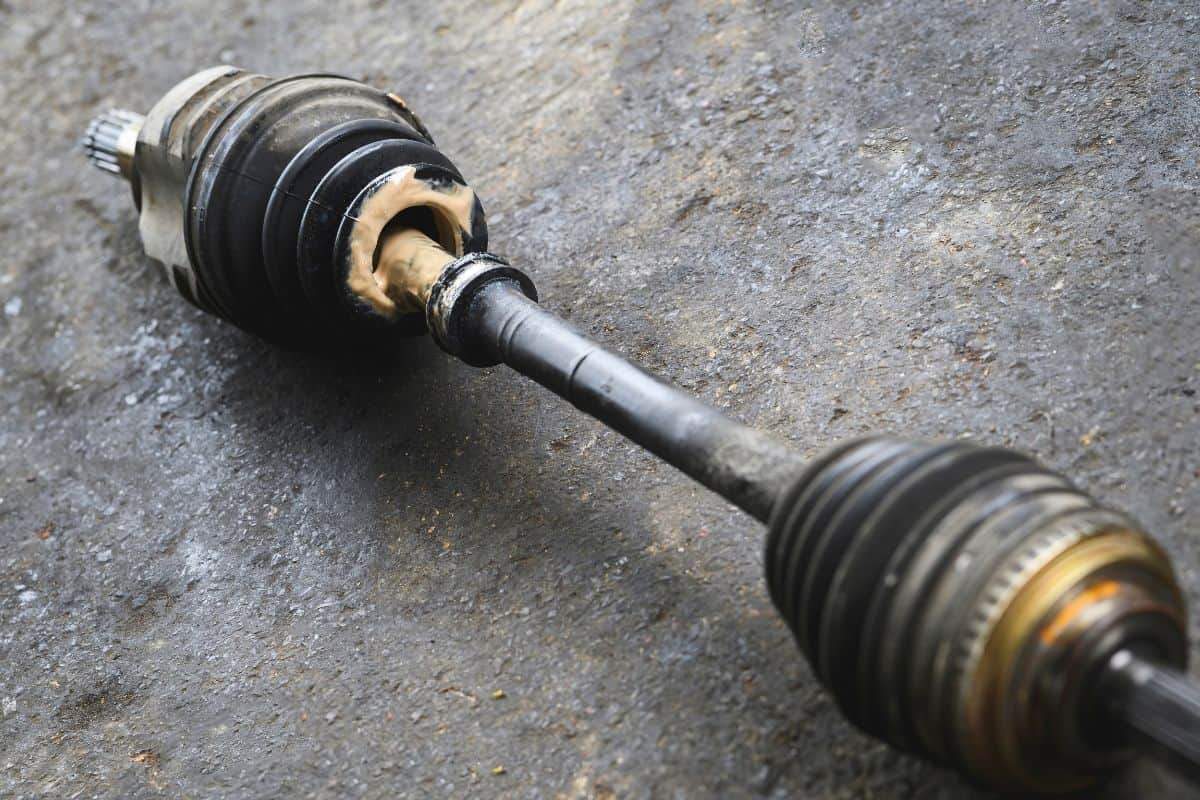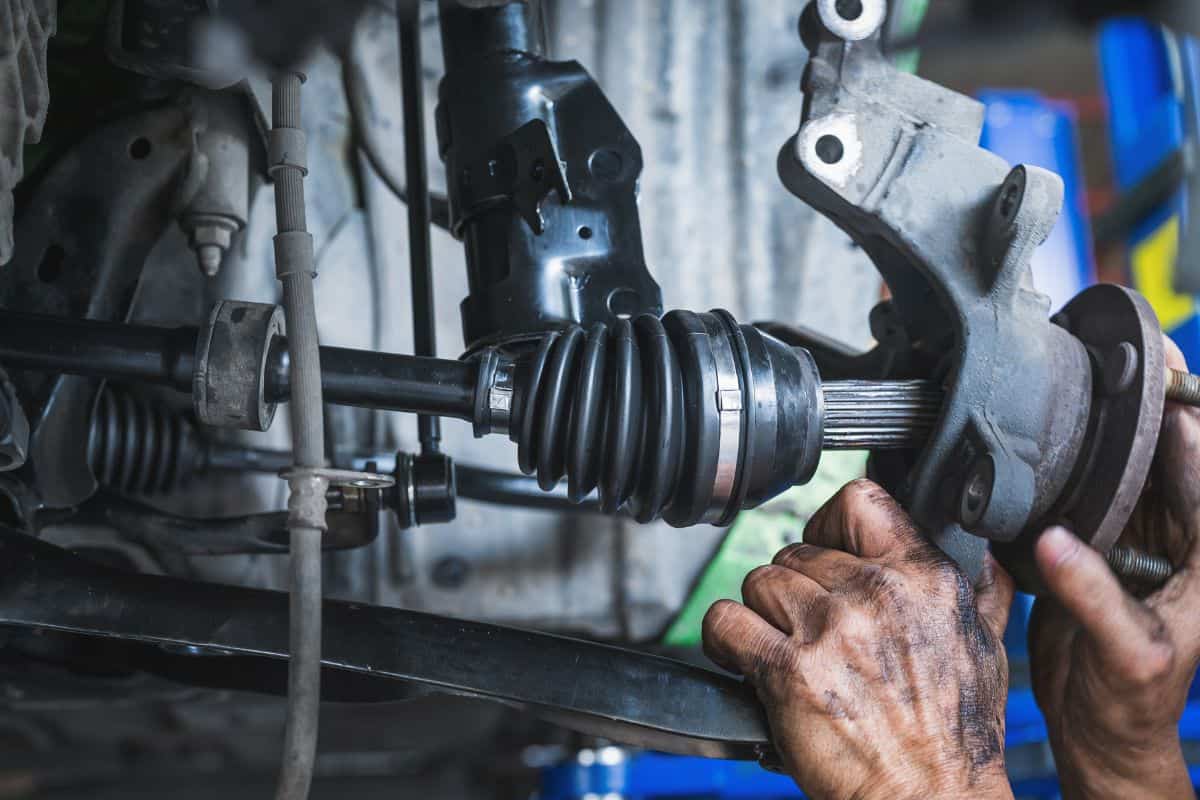You might be surprised at how much of an impact your car's axles have on the overall performance of the wheel system of your vehicle. Important aspects such as handling, steering, responsiveness, and braking are all attributed to your CV joints and axles. That is why, in this article, we have researched and asked the experts, are you supposed to have play on your axles? This is what we found out.
Your front CV axles should have a small amount of play in them. Very minimal movements of in, out, up, and down is normal for the inner joint as these flexes.
However, if you notice some movements on the outer joints, there could be some potential fault or damage to your axles. We recommend that you immediately have this checked by your local trusted mechanic.
Are you interested to learn more about the axles of your car? Continue reading as we discuss other interesting topics like how much movement a CV joint should have, the axles' effects on the steering, diagnosing if your axles are damaged, and many more. We will also be suggesting some cool and informative topics at the end of this article. So go ahead and finish reading until the end.
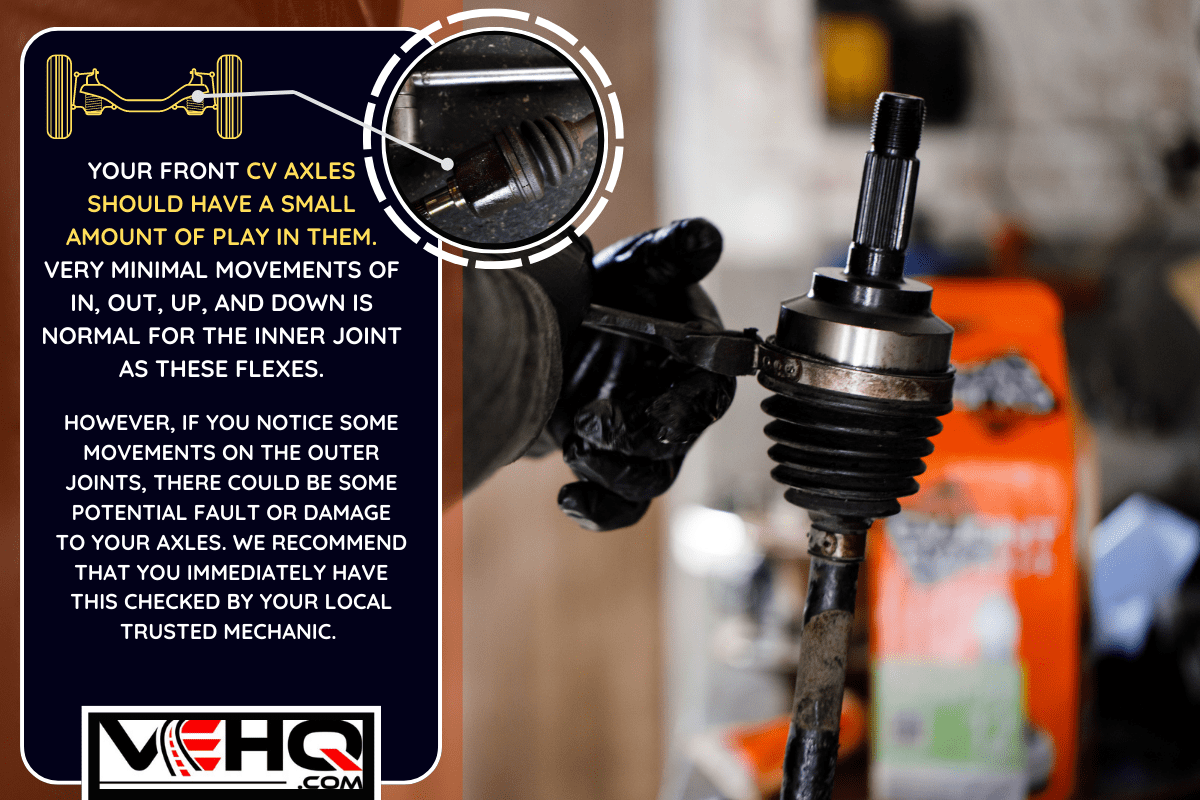
Should you be able to wiggle a CV axle?
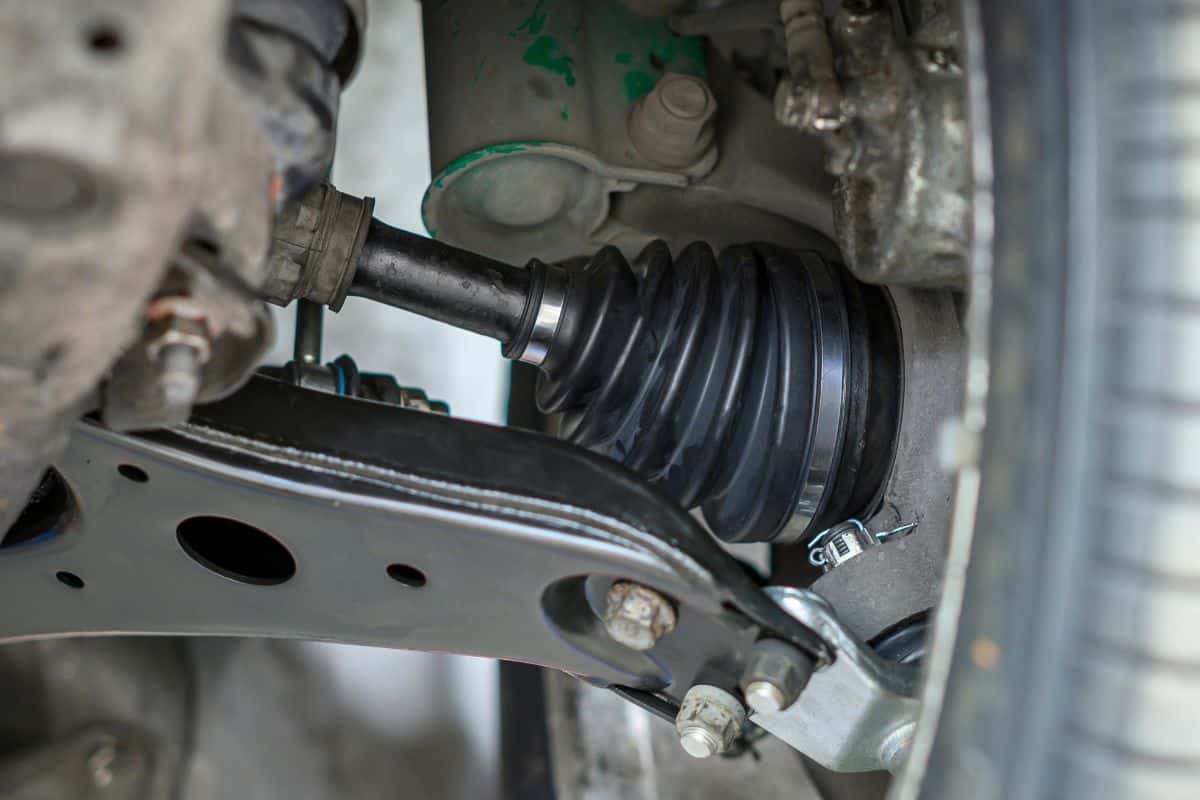
The main job of your CV axle is to deliver the power from your engine to your wheels. Your vehicle's axle is basically the bridge that connects your motors to the wheels and dictates how fast or how slow your car should be going depending on the power output the engine gives it.
CV (Constant Velocity) axle has two main parts, the outer CV joint and the inner CV joint. The inner joint is the one that connects the axle to the transaxle, while the outer joint is connected to the inner joint, which serves as the connection to the wheels.
There should be no play for the outer axle as this directly attaches to the wheels as it is the main part of the axle that delivers torque and power to the wheels.
On the other hand, very minute to almost no movement should be observed for the interior joint. As this joint is the one that interacts with the transmission of the vehicle through the transaxle. The play is a result of clearance from the bushing where the shaft interacts with the transmission.
What can cause axle play?
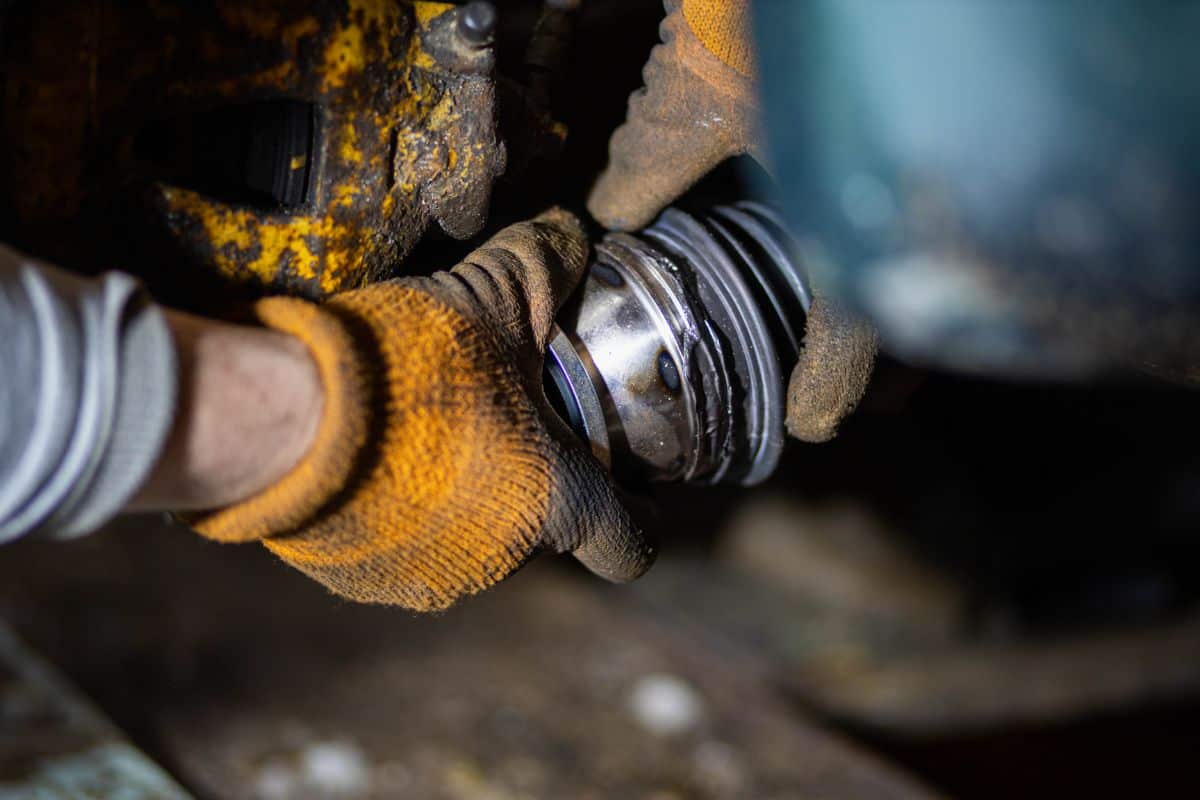
General wear and tear of your vehicle is the number cause of malfunctioning axle. Overloading, especially on a constant, can also contribute to the immediate damage to your axle.
Other factors, such as a car accident and driving through a deep pothole at high speeds, can also be credited to your CV joints having an unnecessary play on your axle, which can lead to many problems if left unfixed.
How do I know if my axle is good?
The effects of your axle on the overall performance of your vehicle are often overlooked. The axles are the ones responsible for delivering the appropriate power to your wheels for you to move forward.
Steering, handling, and stability can all be attributed to a good-performing axle. The axles are also one of the parts that hold your wheel and brakes in place.
Below are some tell-tale signs that, if we often experience at least one of these, could be a potential indicator that there is a problem with your axle.
Excessive vibrations while driving
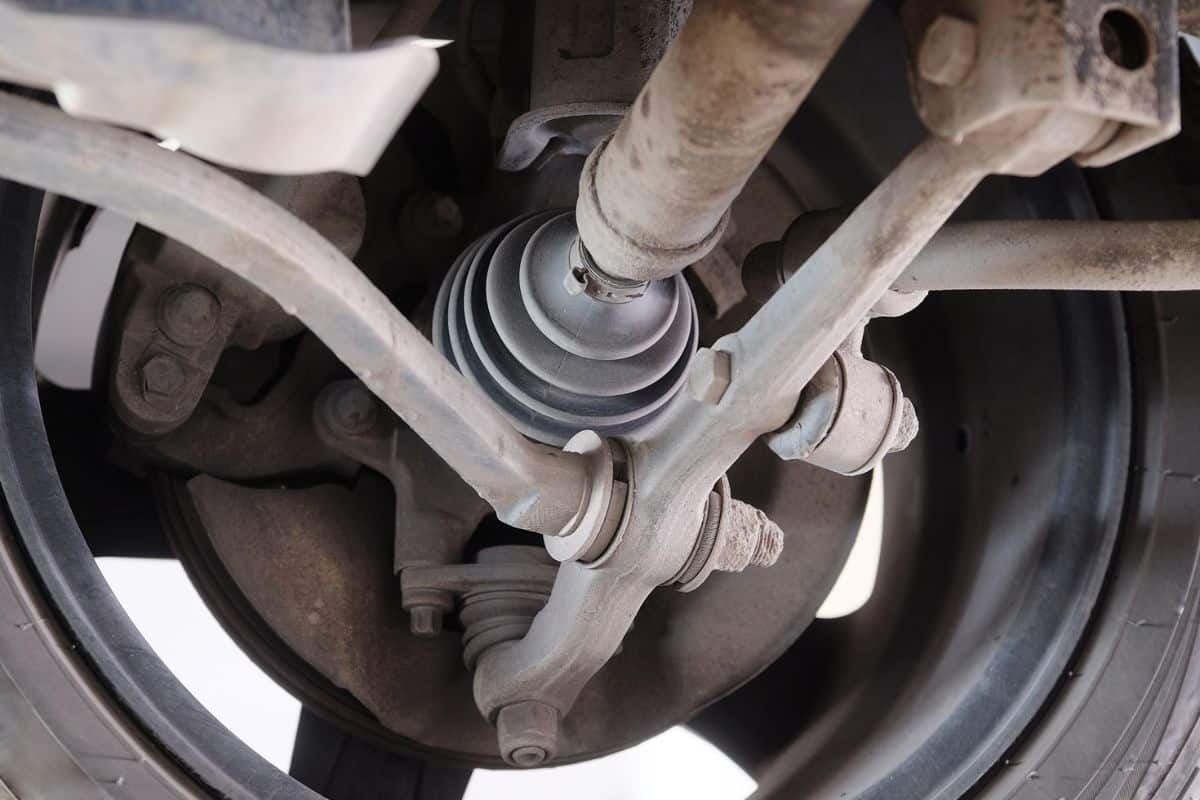
A disclaimer, vibration is fairly normal with your vehicle, especially for a manual transmission car where vibration is more prevalent. But if you are experiencing too much vibrations, particularly while increasing and decreasing in speed, coupled with an extra bouncy feeling as you drive, your axle could be faulty.
Immediately have your car checked by a proper mechanic to have a proper diagnosis. Some parts could also be the cause of this excessive vibration, but most of the time, your CV axle is the one at fault.
Knocking sounds while driving
Another indication of a bad CV axle is an annoying knocking sound that you may hear while the wheels are turning. It is important to note that other damaged parts can also cause this. For the axle, most of the time, this can be louder when you are reversing. This can also give you the feeling that something is hitting your car underneath while moving.
This can also make your driving experience bothersome as the sound of something repeatedly hitting you underneath can be worrying and annoying at the same time.
Immediately inspect if there is something lodged underneath the vehicle. If you can see anything, your axles are one of the main suspects. As soon as possible, bring your car to a local repair shop to have a look at it.
Clicking noises when turning
The most common symptom of a malfunctioning axle is the weird noises when you are turning your car. Remember that your axle has joints that are connected to your wheels. If your outer joint is damaged, clicking, popping, and even cracking noises when turning the steering wheel may be heard.
The most common culprit for this is a worn-out or loose outer joint that can cause your wheels to snap off, leading to a traffic accident. Do not wait to address this when you start hearing these sounds.
Visible grease on your tires
Your entire vehicle (especially the moving parts) has lubricant applied to it, specifically grease. This is done to prolong the metal parts as they interact with one another. Your CV axles are greased up in their boots, which serves as lubrication while the axle spins. Leaks in these boots can cause the grease to spew out, leading to your joints malfunctioning.
These greases can be splattered on your tires. If you notice some sort of slippery black goo on the edges, inside and outside of your tires, there could be a leak on your CV joints.
That is why, when driving, we should not only operate our vehicles to drive but also be aware of how it drives. As car owners, we must be responsible for the state of our vehicles as our lives could literally depend on it.
Regular check-ups before and after using the vehicle are part of responsible car ownership. And always remember the saying, take care of your car, and it will take care of you.

